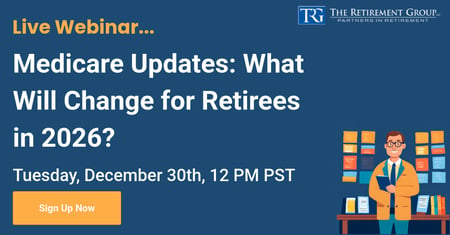In case you haven't seen the recent AT&T memos discussing how rising interest rates will drop some AT&T employees pensions by 30%, we have attached them below with some clarifying details about how they could affect your plan because, if AT&T is putting it in a Memo, it must be important.
Every news site that you visit, the headlines are plastered with "LUMP SUMS FALLING". " MORTGAGE RATES SURGE", “HISTORICAL INFLATION RATES HIGHEST IN 40 YEARS” or “HIGHEST INTEREST RATES IN THE 15 LAST YEARS," but we're going to cut straight to how that affects you as an AT&T employee potentially approaching retirement.
First, let's explain some relevant factors. As inflation increases it affects interest rates. Higher interest rates at most divisions of AT&T cause the lump sum to fall. This makes understanding and tracking inflation an essential requisite in following the directions of interest rates and how it affects your pension.
So, let us start with the definition of inflation. Inflation is known as an increase in the general price levels of goods and services. It is measured through the CPI (Consumer Price Index) produced by the Bureau of Labor Statistics.

Sponsored Ad
Inflation is an almost inevitable occurrence at this point in history and many people who retire tend to expect a consistent rate over their life span, calculating their retirement expenses accordingly. However, these calculations quickly change when there are abrupt increases in inflation. Unexpected inflation can have devastating effects on an AT&T employee's savings, as it will depreciate your spending power faster than you'd expect it to. Today, you might be able to buy groceries with a certain budget, but during an inflation spike, groceries will outpace your budget and, soon, you’ll find yourself spending considerably more for your normal everyday expenses.
In order to control the rapid rise of inflation, the Federal Reserve uses interest rates to control and limit any inflationary pressures. As interest rates increase, inflation generally decreases. This negatively-correlated relationship is caused by the way in which interest rates affect the rate of borrowing money. When interest rates are low, people will borrow more money as they pay less in interest and, thus, have more liquid capital. This fuels the economy and causes subsequent inflation. As interest rates rise, people borrow less and the markets consequently move slower as there is less fuel to add to the fire. These factors go hand in hand via a delicate economic balancing act.
You may be wondering: “How does this affect my AT&T pension? Should I be choosing lump-sum or annuity?” As pension lump sum amounts are calculated using the current segment interest rates on the IRS table, choosing lump-sum versus annuity has traditionally been a difficult decision. With the expected jump in interest rates this coming year, the lump sum option has become even more attractive than before and, with looming pressure on the Fed to raise rates, this decision will be less cut and dry. Since lump-sum pensions are inversely affected by interest rates, the higher interest rates rise, the less you will receive from your AT&T lump-sum pension. As interest rates rise, however, annuity pensions become a lot more attractive since they use current interest rates to calculate lifetime monthly payments. The looming issue with annuity is that you will then be married to AT&T for the rest of your life
In regards to healthcare, costs are currently lagging behind the country’s 8% inflation rate, as it has only risen 5% over this past year. However, we are seeing a labor shortage in the healthcare sector, which can lead to a rise in wages to attract workers and would ultimately increase prices, as well as insurance premiums for patients. Many AT&T retirees typically rely on Medicare to support them and their healthcare costs, however, Medicare rarely covers all the costs patients accrue over time, and patients are still required to pay a premium on top of out-of-pocket expenses. These premiums will increase as inflation continues to increase, leading to an overall increase in expenses for healthcare. For this upcoming year, Medicare Part B premiums increased by 14.5%, pushing the standard monthly premium to $170.10. Even though, as a whole, healthcare costs have not risen in line with inflation, we have seen very high inflation for those nearing or at retirement age and are expecting premium increases in the near future.
With increasing prices in drug expenses and Medicare premiums, the Employee Benefit Research Institute (ERBI) found in their 2022 report that couples with average drug expenses would need $296,000 in savings to cover those expenses in retirement - a 10% increase from the year prior. Couples with higher drug expenses would need $361,000 to cover those healthcare costs - an 11% increase from the year prior.
Overall, the landscape of the economy is rapidly changing and these recent developments have been shifting people’s expectations and forecasts for retirement. Understanding how inflation and interest rates will affect your retirement is a vital step in crafting a successful retirement plan. For any additional questions, feel to speak to an advisor at The Retirement Group by calling (800) 900-5867.


